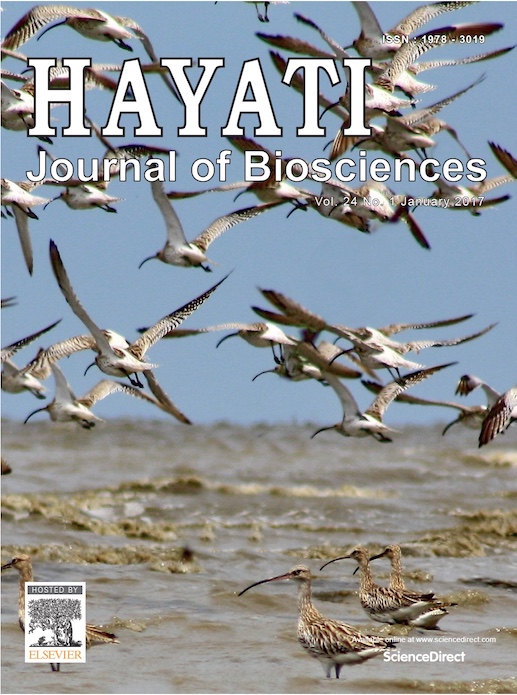Diversity of Protease-Producing Bacillus spp. From Fresh Indonesian Tempeh Based on 16S rRNA Gene Sequence
Abstract
Tempeh is a type of traditional fermented food in Indonesia. The fermentation can be performed by Rhizopus microsporus as a main microorganism. However, Bacillus spp. is found in abundance in tempeh production. Nevertheless, information regarding the diversity of Bacillus spp. in tempeh production has not been reported yet. Therefore, the aim of this investigation was to study the genetic diversity of Bacillus spp. in tempeh production based on the 16S ribosomal RNA sequence. In this study, about 22 of 24 fresh tempeh from Jakarta, Bogor, and Tangerang were used. A total of 52 protease-producing Bacillus spp. isolates were obtained. Based on 16S ribosomal RNA results, all 52 isolates were identified to be similar to B. pumilus, B. subtilis, B. megaterium, B. licheniformis, B. cereus, B. thuringiensis, B. amyloliquefaciens, Brevibacillus brevis, and Bacillus sp. All the identified isolates were divided into two large clusters: 1) a cluster of B. cereus, B. thuringiensis, Bacillus sp., and B. brevis and 2) a cluster of B. pumilus, B. subtilis, B. megaterium, B. licheniformis, and B. amyloliquefaciens. Information about the Bacillus spp. role in determining the quality of tempeh has not been reported and this is a preliminary study of Bacillus spp. from tempeh.Downloads
HAYATI J Biosci is an open access journal and the article's license is CC-BY-NC. This license lets others distribute, remix, tweak, and build upon author's work, as long as they credit the original creation. Authors retain copyright and grant the journal/publisher non exclusive publishing rights with the work simultaneously licensed under a https://creativecommons.org/

























.png) IPB University
IPB University Department of Biology
Department of Biology The Indonesian Biological Society
The Indonesian Biological Society 

